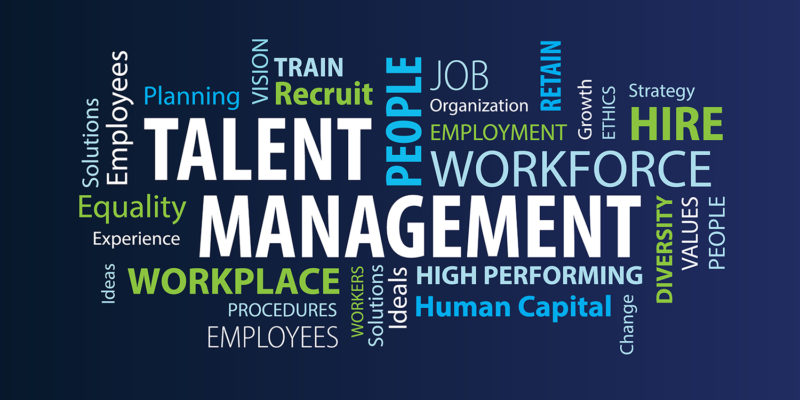Supplier Relationship Management: Examining the Talent of the Future
How are the skillsets for sourcing, procurement, and supply management professionals evolving to meet future talent needs, including digital capabilities? What will be needed for effective supplier relationship management in the future both from pharma companies and suppliers?
Key best practices and talent of top supply chains
Human centric digital automation was cited as one of four key attributes of companies ranked with the top supply chains according to a recent analysis and ranking by The Gartner Group of the Top 25 supply chains in 2021. The Gartner Group, a business intelligence and consulting firm, released the results from its annual Global Supply Chain Top 25 that identified leading supply chains and their best practices, including , including talent management to support increased digitalization in supply chains.
A key focus of leading supply chains is increased digitalization and supporting these technologies through employee training to optimize the use of these technologies. In its analysis, the Gartner study notes that supply-chain leaders are tasked with balancing long-term investments in automation with immediate investments in technologies that reduce employee cognitive load and prioritize time and attention to areas where people perform better than machines, such as relationship building and responding to new operating conditions. There are also cases where people perform better with machines. For example, warehouse or plant workers can increase their productivity by working with robots.
“To prepare their employees for the future, leaders are prioritizing programs that train digital literacy and dexterity,” said Mike Griswold, Vice President Team Manager with the Gartner Supply Chain practice, in commenting on the important attributes of companies with top supply chains. “These educational and applied learning programs enable employees to use data-driven analytics for more informed decision making in their roles.”
The value of advancing digital technologies such as artificial intelligence (AI), blockchain, and predictive analytics, has taken on greater importance as the bio/pharma industry, along with other industries, grapple with supply-chain challenges that emerged during the pandemic and that continue today. The pandemic not only exposed supply-chain vulnerabilities but also has caused companies to re-evaluate their supply chains and address existing inefficiencies and ways to improve supply-chain performance.
So-called “digital-first” supply chains was also cited as one of the top three characteristics by the Gartner Group in its rankings of Top 25 Supply Chains in 2020. A Gartner survey of board of directors, taken late in 2020, showed that nearly 70% of companies accelerated their digital roadmaps during the pandemic. “Some leading supply chains have reached a point in their transformation journey where they consider themselves ‘digital first’ in the use of technology to enable more seamless customer experiences and more automated and insightful decisions in supply and product management, at scale,” according to the Gartner analysis.
The Gartner analysis emphasizes that digital transformation would not be possible without the right talent. It points to leading companies conducting formal skills assessment and strategic workforce planning. AI, machine learning, and Big Data analysis are the most common capabilities, and most are simultaneously recruiting and developing these skills in their organizations, according to the analysis. The study points to several advanced supply-chain organizations running digital literacy and dexterity programs to enable employees to better understand and exploit digital business opportunities. New digital technologies are seen as a means for employees to stop spending time on manual, non-value-added activities, so they can focus on providing more value-added activities.
A Pulse Survey, conducted by the management-consulting firm, PwC, of more than 650 executives earlier this year (January 2022) asked what they see as the most significant issues in their growth strategy; 60% said that digital transformation is their most important growth driver. Almost a third (32%) of executives foresee continued supply-chain disruptions, which are leading companies to evaluate alternative sourcing strategies, from policy shifts to opportunities to digitize supply chains.
In addition, a separate PwC survey, the PwC Digital Trends in Supply Chain Survey, fielded November 2021 to January 2022, surveyed 244 operations and information technology leaders, C-suite executives, and other supply-chain officers from companies in select supply-chain-intensive sectors to assess how they are addressing supply-chain management operating models, including the use of enterprise and emerging technologies. Sectors surveyed included chemicals and other manufacturing and industrial products; pharmaceuticals and life sciences; consumer markets and retail; energy, utilities and mining; aerospace; automotive; and technology, media and telecommunications.
Although increasing efficiency and managing or reducing costs in supply-chain operations topped the list of priorities over the next 12-18 months, ranked as the number one priority respectively by 63% and 59% of respondents, digitalization of the supply chain was also cited as an important issue but talent gaps are an issue. Twenty-one percent cited a need to better automate and improve analytics in their supply chains, and 19% cited increasing the digital skill sets of employees as a top priority. Many companies—58% of respondents—are seeing higher than normal supply-chain employee turnover, and only 23% fully agree that they have the necessary digital skills to meet future goals. Most also expect to make changes to their operational systems in the next year.
As companies continue to digitalize supply chains, budget constraints have been the biggest hurdle, with nearly half of respondents ranking it among their top three challenges, according to the PwC study. Talent and technology have posed problems with digitalization in various ways. Three out of ten cited difficulty getting employees and teams to work differently as a top-three challenge while nearly a quarter pointed to difficulties with the “digital native” talent needed to transform supply chains. On the technology side, a lack of understanding of business and technical capabilities and software and hardware shortcomings with analytical and process capabilities also were cited as top challenges.







